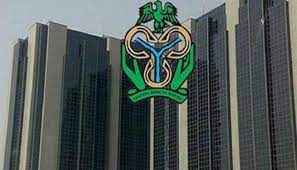In a timely statement coinciding with discussions on a new round of bank recapitalization, the Central Bank of Nigeria (CBN) has emphasized the robust health of the Nigerian banking sector. As the sector grapples with the potential challenges of recapitalization and navigates a landscape influenced by internal and external economic pressures, the CBN’s report provides crucial insights into its financial health.
The CBN’s 2023 Economic Report affirms the soundness of the Nigerian banking sector, offering assurances amid macroeconomic challenges stemming from both external and internal shocks. According to the report, Nigerian banks exhibited a Capital Adequacy Ratio (CAR) of 14.2%, reflecting an increase from the previous quarter’s 13.8%. CAR is a critical measure indicating a bank’s ability to absorb potential losses.
In terms of asset quality, measured by the Non-Performing Loans (NPL) ratio, the report notes a slight increase to 4.5%. Importantly, this figure remains below the 5.0% prudential benchmark, indicating a controlled level of credit risk within the sector.
The Industry Liquidity Ratio (LR) also witnessed a notable improvement, rising to 73.8%. This marks a significant increase from the preceding month’s 62.2% and comfortably surpasses the 30.0% regulatory requirement. The higher LR suggests a robust capacity among banks to manage short-term liabilities effectively.
As the banking sector grapples with these indicators, the CBN’s report serves as a foundational document for ongoing discussions about the planned banking recapitalization. The CBN announced its intention to initiate a fresh round of recapitalization for Deposit Money Banks (DMBs), necessitating additional capital to meet the demands of Nigeria’s economy.
Governor Olayemi Cardoso, during the 58th Annual Bankers’ Dinner in Lagos, organized by the Chartered Institute of Bankers of Nigeria (CIBN), disclosed the planned recapitalization. He highlighted that President Bola Ahmed Tinubu, in his report to the Policy Advisory Council on the national economy, set an ambitious target of reaching a $1 trillion Gross Domestic Product (GDP) by 2030.
As the Nigerian banking sector positions itself for potential changes through recapitalization, the CBN’s comprehensive evaluation underscores the sector’s resilience and preparedness to navigate the evolving economic landscape.











